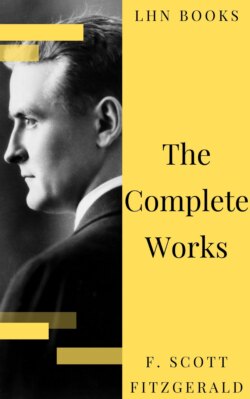Читать книгу The Complete Works of F. Scott Fitzgerald - F. Scott Fitzgerald - Страница 86
На сайте Литреса книга снята с продажи.
Tom the Censor.
ОглавлениеThere were days when Amory listened. These were when Tom, wreathed in smoke, indulged in the slaughter of American literature. Words failed him.
“Fifty thousand dollars a year,” he would cry. “My God! Look at them, look at them—Edna Ferber, Gouveneer Morris, Fanny Hurst, Mary Roberts Rinehart—not producing among ’em one story or novel that will last ten years. This man Cobb—I don’t think he’s either clever or amusing—and what’s more, I don’t think very many people do, except the editors. He’s just groggy with advertising. And—oh Harold Bell Wright oh Zane Grey——”
“They try.”
“No, they don’t even try. Some of them can write, but they won’t sit down and do one honest novel. Most of them can’t write, I’ll admit. I believe Rupert Hughes tries to give a real, comprehensive picture of American life, but his style and perspective are barbarous. Ernest Poole and Dorothy Canfield try but they’re hindered by their absolute lack of any sense of humor; but at least they crowd their work instead of spreading it thin. Every author ought to write every book as if he were going to be beheaded the day he finished it.”
“Is that double entente?”
“Don’t slow me up! Now there’s a few of ’em that seem to have some cultural background, some intelligence and a good deal of literary felicity but they just simply won’t write honestly; they’d all claim there was no public for good stuff. Then why the devil is it that Wells, Conrad, Galsworthy, Shaw, Bennet, [Bennett,] and the rest depend on America for over half their sales?”
“How does little Tommy like the poets?”
Tom was overcome. He dropped his arms until they swung loosely beside the chair and emitted faint grunts.
“I’m writing a satire on ’em now, calling it ‘Boston Bards and Hearst Reviewers.’”
“Let’s hear it,” said Amory eagerly.
“I’ve only got the last few lines done.”
“That’s very modern. Let’s hear ’em, if they’re funny.”
Tom produced a folded paper from his pocket and read aloud, pausing at intervals so that Amory could see that it was free verse:
“So
Walter Arensberg,
Alfred Kreymborg,
Carl Sandburg,
Louis Untermeyer,
Eunice Tietjens,
Clara Shanafelt,
James Oppenheim,
Maxwell Bodenheim,
Richard Glaenzer,
Scharmel Iris,
Conrad Aiken,
I place your names here
So that you may live
If only as names,
Sinuous, mauve-colored names,
In the Juvenalia
Of my collected editions.”
Amory roared.
“You win the iron pansy. I’ll buy you a meal on the arrogance of the last two lines.”
Amory did not entirely agree with Tom’s sweeping damnation of American novelists and poets. He enjoyed both Vachel Lindsay and Booth Tarkington, and admired the conscientious, if slender, artistry of Edgar Lee Masters.
“What I hate is this idiotic drivel about ‘I am God—I am man—I ride the winds—I look through the smoke—I am the life sense.’”
“It’s ghastly!”
“And I wish American novelists would give up trying to make business romantically interesting. Nobody wants to read about it, unless it’s crooked business. If it was an entertaining subject they’d buy the life of James J. Hill and not one of these long office tragedies that harp along on the significance of smoke——”
“And gloom,” said Tom. “That’s another favorite, though I’ll admit the Russians have the monopoly. Our specialty is stories about little girls who break their spines and get adopted by grouchy old men because they smile so much. You’d think we were a race of cheerful cripples and that the common end of the Russian peasant was suicide——”
“Six o’clock,” said Amory, glancing at his wrist-watch. “I’ll buy you a grea’ big dinner on the strength of the Juvenalia of your collected editions.”
